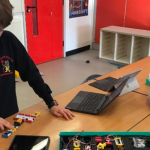transcript taken from Prof Dr Ger Graus OBE’s talk – details below
In the United Kingdom, we have the National Health Service. It is 70 or so years old. It is probably, one might argue, the United Kingdom’s finest invention. Because it is an organization that is double-winged: It has the head, it has the heart. And it does those two things brilliantly. Not perfectly, but brilliantly.
Look at what an operating theatre in a hospital looked like a hundred years ago. Look at an operating theatre now. In order to get to the hospital, I need a car. Look at a car from a hundred years ago, look at a car now.
When I fly to İstanbul, a hundred years ago with an airplane, compared to the Turkish Airlines flight now. Look how the world has changed. And look how, in schooling terms, we still deliver the same thing, but we expect outcomes that meet that changed world.
It’s not going to work, is it? At some point, we’re going to need to be brave enough and take stock, and drive change. And I don’t think that change is going to come from politicians. Politicians, by and large, are populists, want to be reelected, and they’re not specialists. The Secretary of State for Education, for instance, is not an education specialist. And many of the people he or she surrounds themselves with are not specialists either. And actually quite often they are either too arrogant or too proud to talk to the specialists and listen to what they’ve got to say.
It’s a very strange thing, education, in that it is shaped by people who know very little about it and the people who know lots about it are deliberately ignored. There is of course also the question about education as something that we all do, that we all have a responsibility for. The businesses, for example, used to have a vested interest: Think of the Industrial Revolution era. Businesses at the moment, some hundred years later, don’t necessarily behave anymore as if they have a vested interest. They sit and they wait for the children to come out of school, and then they go, “They haven’t got the skills we need.”
Well, actually, unfold your arms, roll up your sleeves, and go and work in those schools to have better achievements. Then there is another point, that is for me the biggest difference between a hundred years ago and now. It is a lesson that we need to learn very quickly.
The purpose of schooling a hundred years ago was clear. It was related to the economy and the Industrial Revolution. But that was two hundred years ago – that story was then. We need to ask ourselves the question now, a number of questions really. Why do we send children to school and why is it the same?
The text you have read is taken from The Heart of Science Talks, a series of opinion pieces in video format, with renowned educators, scientists, specialists, and everyone who carries within themselves the heart of science. Topics range from education to robotics, life skills and conscientious thinking. On our Youtube channel, you can watch a new installation every Saturday. These are bite-sized videos & essays, great to accompany your morning coffee. In the next 8 weeks, Prof Dr Ger Graus OBE will take us on a journey through schooling, education, learning, aspiration, and inspiration!



